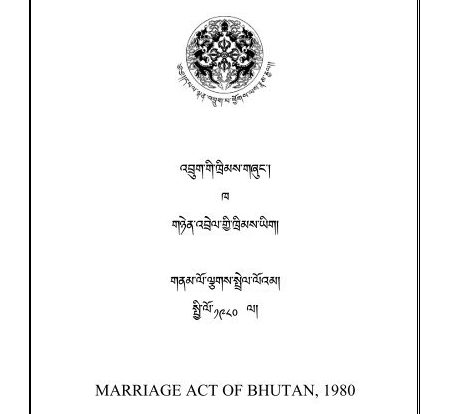Citizenship of a state is the right of the holder to have the same rights as any other member of the state. In contrast, categorization of citizenship creates distinct groups with different limitations, rights, and privileges and makes citizens unequal before the law. In Bhutan, there are three major and seven subcategories of citizens created by the government. The three major categories include ‘natural-born citizen of Bhutan,’ ‘Bhutanese citizen by registration,’ and ‘naturalized citizen of Bhutan.’ Based on marriage and presence or absence during regular and surprise censuses, there are seven sub-categories of citizens ranked F1 to F7, the abbreviations of the files (F) in which their names are listed. Marriage laws of Bhutan discourage marriages between a Bhutanese citizen and a non-Bhutanese spouse through lifelong penalties and demotion in citizenship categories. While both polyandry and polygamy are legal for up to four marriages, the encouragement is on intra-category marriages. The marriage law applies even to the crown prince, who is a successor of the throne, that he must marry only ‘natural-born citizen of Bhutan’ to remain eligible to the throne. This article highlights the background of promulgation of citizenship and marriage laws and their implication, so that future researchers can compare the Bhutanese and international laws and study how the outlook of the people are shaped.
Bhutan Watch
Critical Appreciation – Constructive Criticism

One thought on “Citizenship and Marriage Laws of Bhutan”
Comments are closed.